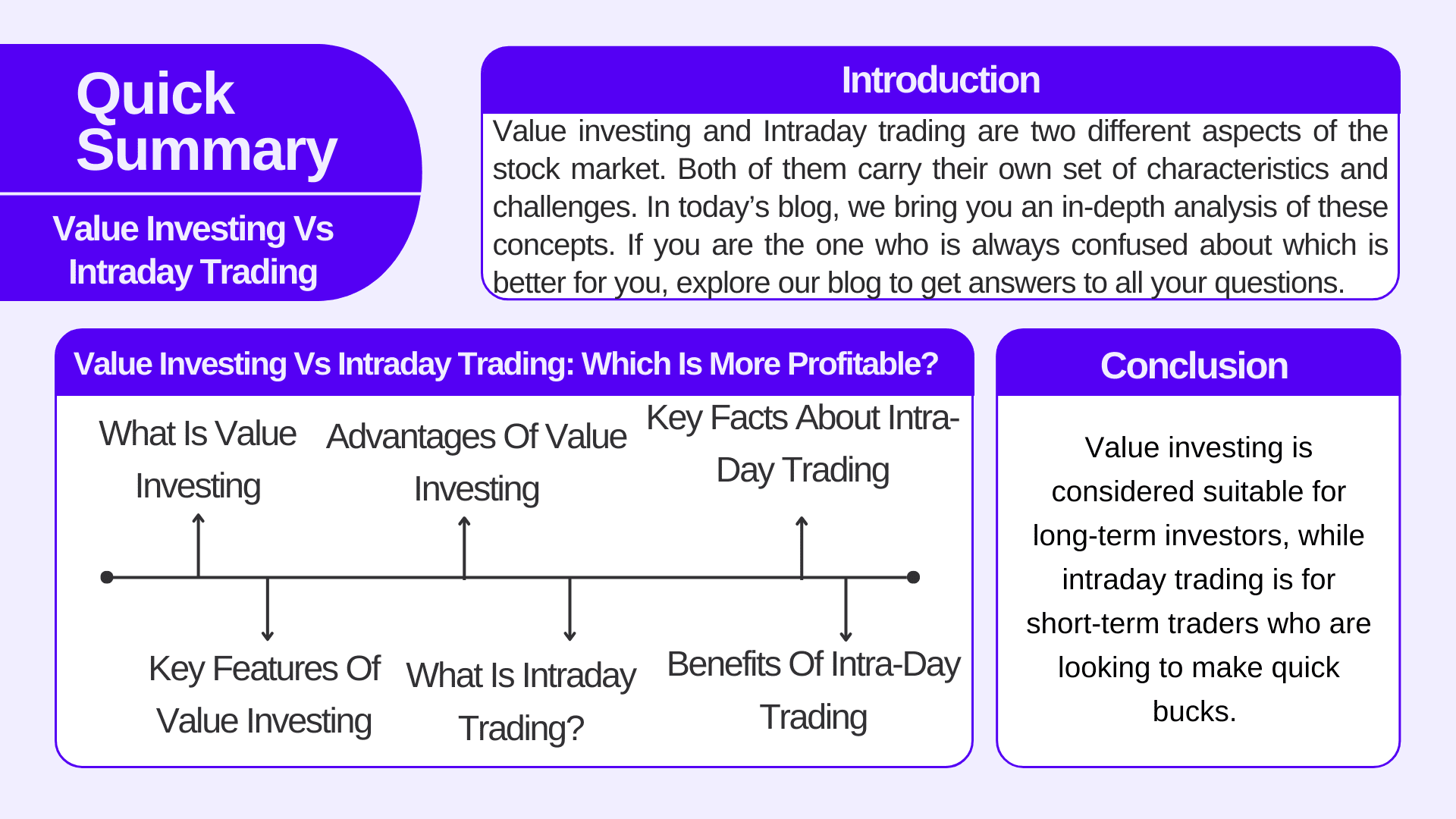| Type | Description | Contributor | Date |
|---|---|---|---|
| Post created | Pocketful Team | Dec-04-23 | |
| Add new links | Nisha | Mar-20-25 |
Read Next
- Rakesh Jhunjhunwala Portfolio 2025: Top Holdings & Strategy
- BankBeES vs Bank Nifty – Key Differences
- Current Ratio vs Quick Ratio Key Differences
- Best REIT Stocks in India 2025
- Best Data Center Stocks in India 2025
- Best Rare Earth Stocks in India
- Top 10 investment banks in India
- What Is iNAV in ETFs?
- Best Investment Options in India 2025
- Best Energy ETFs in India 2025
- Radhakishan Damani Portfolio 2025: Stocks & Strategy Insights
- Best SEBI Registered Brokers in India
- Best Air Purifier Stocks in India
- Best Space Sector Stocks in India
- Gold Rate Prediction for Next 5 Years in India (2026–2030)
- Difference Between Equity Share and Preference Share
- Vijay Kedia Portfolio 2025: Latest Holdings, Strategy & Analysis
- Raj Kumar Lohia Portfolio 2025: Holdings, Strategy & Analysis
- How to Earn Passive Income Through Dividend-Paying Stocks in India
- Top 10 Richest Investors in the World 2025 – Net Worth, Key Investments & Strategies
- Blog
- value investing vs intraday trading which is more profitable
Value Investing Vs Intraday Trading: Which Is More Profitable?


Value investing and Intraday trading are two different aspects of the stock market. Both of them carry their own set of characteristics and challenges. In today’s blog, we bring you an in-depth analysis of these concepts. If you are the one who is always confused about which is better for you, explore our blog to get answers to all your questions.
What is Value Investing?

Value investing is an investment strategy that involves buying securities at a price lower than their intrinsic value with the purpose of holding them for an extended period, often years or decades. The main objective of value investing is to create wealth over time. Value investors believe that the market does react to good and bad news that results in movements in stock price, but these movements are temporary and do not leave any impact in the long run. Value investors majorly focus on fundamental analysis of the company, such as earnings quality, dividends, and financial statements. They are of the view that the market will recognize the true worth of the stocks that are trading below their intrinsic value over time.
Rakesh Jhunjhunwala and Dolly Khanna are the biggest examples of value investors in India.
Read Also: Top 10 Intraday Trading Strategies & Tips for Beginners
Key features of Value Investing
Margin of Safety
Long-term investors seek to purchase stocks at a discount to their intrinsic value, creating a margin of safety and avoiding potential losses.
Long-Term Perspective
Value investors typically purchase stocks with the intention of holding them for extended periods of time, which calls for patience and self-control.
Contrary Approach
Value investors often take a contrarian approach. This approach includes doing the reverse of what the majority is doing. Contrarian investors believe that the majority of the participants act in a herd because of fear, greed, etc., which results in securities being temporarily overvalued or undervalued. This approach can be highly rewarding, but keep in mind that it can be a risky one, which may result in hefty losses.
Interesting Fact: Warren Buffett is a famous Contrarian Investor
Advantages of Value Investing

Better Returns
Value investing has historically achieved superior and stable returns when compared to other investing strategies. By buying undervalued stocks and waiting for them to generate returns, long-term investors can benefit from the market’s eventual recognition of the company’s true value.
Lesser Risk
The margin of safety reduces the risk of the investors and protects them from losses if the valuation of the stock that they are holding is slightly off.
Disciplined Approach
Value investing focuses on a long-term perspective and encourages a disciplined and planned approach to investment, preventing investors from making impulsive decisions.
Challenges of Value Investing
- Identifying undervalued stock is a challenging task, as analyzing the financials of the company and calculating its true value can be complex.
- A contrarian approach to value investing can sometimes lead to holding stocks that are unpopular with the market and will not be able to generate potential gains over time. Not all the stocks trading at a seemingly low valuation are good investment opportunities.
- Timing the market, i.e., identifying the right time to enter the market or buy a stock, can be challenging.
- Psychological biases, such as overconfidence or anchoring, can influence investors and lead to poor decision-making.
- Value investors may face challenges when industries evolve and companies fail to adapt to new trends or technologies, leading to value destruction.
What is Intraday Trading?

Intra-day trading is a financial approach where stocks, currencies, and commodities are bought and sold within the same trading day. Intra-day traders aim to earn profits from very short-term price fluctuations in the market, and they do not carry their positions overnight.
Key facts about Intra-day trading
- Intraday trading is carried out on short-time frames on technical charts like 1 minute, 5 minutes, 15 minutes, 1 hour, and 4 hours.
- Intraday traders design their strategies based on technical analysis. (Read our blog, Best Options Trading Chart Patterns, to know more about technical analysis)
- Intraday traders get an option to leverage their trading positions. This allows them to buy more stocks with a lesser amount of capital. However, do remember that leverage is a double-edged sword.
- Intra-day traders are generally quick decision-makers because market timing and executions are crucial factors for them.
- Intra-day trading can be speculative since traders try to catch short-term market movements.
Benefits of Intra-day Trading

Quick profits
Intraday traders can earn quick profits within a single trading day because they aim for short-term price movements, which involve multiple trades in a day. At the end of the day, these multiple small trades can significantly influence the overall P&L.
Lesser risks.
Intraday traders do not carry positions overnight and square off their positions within the same trading day. This eliminates the risk of gap-up and gap-down openings, as well as random market news.
Leverage
Intraday traders can significantly benefit from taking high leverage in intra-day trades, which can significantly influence their P&L. However, keep in mind that leverage is a double-edged sword, and it is advisable to trade with less leverage while carrying out intra-day trades.
Challenges of Intraday Trading
- Excessive market volatility can lead to unpredictable swings, thereby causing losses and increasing market risks.
- Day traders can face constant fear of loss of capital, and the mental pressure to make instant decisions can be stressful. Fear and greed can lead to impulsive decisions.
- Intraday traders can end up paying higher transaction costs (brokerage, STT, stamp duty, etc.) because they might execute multiple trades on the same day.
- Day traders get a limited time window to execute trades, and they may face technological issues since they rely heavily on real-time data provided by the broker.
- Sticking to your strategy in real-time markets can be a tough task since it requires a lot of patience and discipline.
Value Investing vs Intra-day Trading
Since both come with their own merits and demerits, choose what aligns best with your financial goals and investment horizon. We have created a table of differences for you. Let’s have a look:
| Basis | Value Investing | Intra-day Trading |
|---|---|---|
| Time Horizon | Long-term (generally >5 years) | Within a day |
| Investment Philosophy | Major focus on fundamental analysis | Intra-day traders focus on technical analysis |
| Stock Selection | Undervalued stocks | Highly liquid and volatile stocks are preferred |
| Risk | Value investing generally carries lower risk. | Carries higher risk than Value investing |
Read Also: Difference Between Intraday Trading and Delivery Trading
Conclusion

To wrap it up, it completely depends on the individual preferences, risk tolerance, and time that he or she is willing to give. Value investing is considered suitable for long-term investors, while intraday trading is for short-term traders who are looking to make quick bucks. Keep in mind that intraday trading is a zero-sum game, while value investing is a positive-sum game. Both strategies carry inherent risks, and careful evaluation is required.
Frequently Answered Questions (FAQs)
Which is riskier? Value investing or intra-day trading
Intraday trading is considered riskier.
Is it suggested for beginners to be involved in intraday trading?
No, intra-day is speculative in nature and is generally not suggested to beginners.
Which investment approach uses fundamental analysis?
Value investing uses fundamental analysis and reading financial statements.
Mention two value investors in India.
Rakesh Jhunjhunwala and Dolly Khanna.
What is the intrinsic value of a stock?
The inherent value or true worth of the stock is known as intrinsic value.
Disclaimer
The securities, funds, and strategies discussed in this blog are provided for informational purposes only. They do not represent endorsements or recommendations. Investors should conduct their own research and seek professional advice before making any investment decisions.
Article History
Table of Contents
Toggle